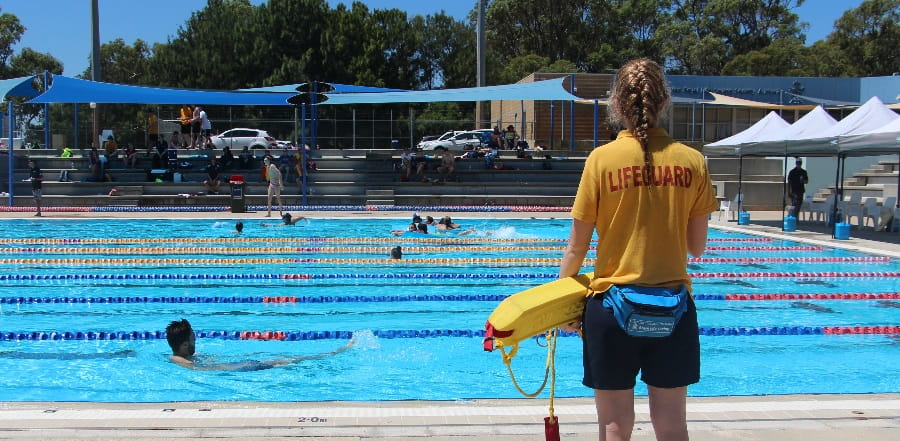Lifeguards are responsible for ensuring the safety of people in and around bodies of water, such as swimming pools, lakes, and beaches. They are trained to respond quickly and effectively in the event of an emergency, providing life-saving assistance and performing CPR if necessary. There are several different types of lifeguards, each with unique training and responsibilities.
1. Pool Lifeguards
Pool lifeguards are trained to work in indoor or outdoor swimming pools. They are responsible for monitoring the pool and ensuring that all swimmers are following the rules and are safe. They must also be trained in CPR, first aid, and water rescue techniques, and be able to respond quickly in the event of an emergency.
2. Beach Lifeguards
Beach lifeguards are responsible for supervising people at the beach, including swimmers, surfers, and sunbathers. They are trained in water rescue techniques, CPR, and first aid, and must be able to react quickly in the event of an emergency, such as a swimmer in distress or a shark sighting. Beach lifeguards also help prevent emergencies by enforcing rules, educating beachgoers about safety, and providing information about ocean conditions.
3. Open Water Lifeguards
Open water lifeguards are responsible for overseeing lakes, rivers, and other natural bodies of water. They are trained in water rescue techniques, CPR, and first aid, and must be able to react quickly in the event of an emergency, such as a swimmer in distress or a boating accident. Open water lifeguards also help prevent emergencies by enforcing rules and educating water users about safety.
4. Water Park Lifeguards
Water park lifeguards are responsible for overseeing the safety of visitors to water parks. They are trained in water rescue techniques, CPR, and first aid, and must be able to react quickly in the event of an emergency, such as a swimmer in distress or a malfunctioning ride. Water park lifeguards also help prevent emergencies by enforcing rules and educating visitors about safety.
What Is The Difference Between A Pool Lifeguard And A Beach Lifeguard?
Pool lifeguards and beach lifeguards both play critical roles in ensuring the safety of people in and around bodies of water. However, there are some key differences between the two types of lifeguards.
- Environment: Pool lifeguards typically work in indoor or outdoor swimming pools, while beach lifeguards oversee people at the beach, including swimmers, surfers, and sunbathers.
- Responsibilities: Pool lifeguards are responsible for monitoring the pool and ensuring that all swimmers are following the rules and are safe, while beach lifeguards are responsible for supervising the beach, educating beachgoers about safety, and providing information about ocean conditions.
- Training: Both pool lifeguards and beach lifeguards must complete lifeguard training and certification through a recognized organization, such as the American Red Cross or the YMCA. However, beach lifeguards may receive additional training in ocean rescue techniques and surf conditions.
- Emergencies: Both pool lifeguards and beach lifeguards must be able to respond quickly in the event of an emergency, such as a swimmer in distress or a water-related accident. However, beach lifeguards may face additional challenges, such as rip currents and shark sightings, that require specific training and response strategies.
While pool lifeguards and beach lifeguards share many of the same responsibilities and training requirements, they also have some distinct differences in their work environments, responsibilities, and potential emergencies.
What Are The Most Important Types Of Lifeguards?
It is not appropriate to say that one type of lifeguard is more important than another, as each type of lifeguard plays a critical role in ensuring the safety of people in and around bodies of water.
- Pool lifeguards are responsible for monitoring the safety of people in swimming pools, and must be trained in CPR, first aid, and water rescue techniques.
- Beach lifeguards are responsible for overseeing people at the beach, including swimmers, surfers, and sunbathers, and must be trained in water rescue techniques, CPR, and first aid.
- Open water lifeguards are responsible for overseeing lakes, rivers, and other natural bodies of water, and must be trained in water rescue techniques, CPR, and first aid.
- Water park lifeguards are responsible for overseeing the safety of visitors to water parks and must be trained in water rescue techniques, CPR, and first aid.
Each type of lifeguard plays an important role in ensuring the safety of people in and around bodies of water, and the specific type of lifeguard required will depend on the specific environment and conditions.

It is not possible to determine which type of lifeguard is the most important, as all types play critical roles in ensuring the safety of people in and around bodies of water.
How To Become A Lifeguard?
In order to become a lifeguard, individuals must complete lifeguard training and certification through a recognized organization, such as the American Lifeguard Association, Red Cross or the YMCA.
Lifeguard classes cover topics such as water rescue techniques, CPR, first aid, and emergency response procedures. Once certified, lifeguards must also participate in regular training and continuing education in order to maintain their skills and remain current with industry standards and best practices.
Conclusion
There are several different types of lifeguards, each with unique training and responsibilities. Lifeguards play a critical role in ensuring the safety of people in and around bodies of water and must complete lifeguard training and certification in order to be effective in their duties.
The American Lifeguard Association (ALA) has lifeguard courses for all types of lifeguards and you can join their lifeguard classes at any time of the year.











